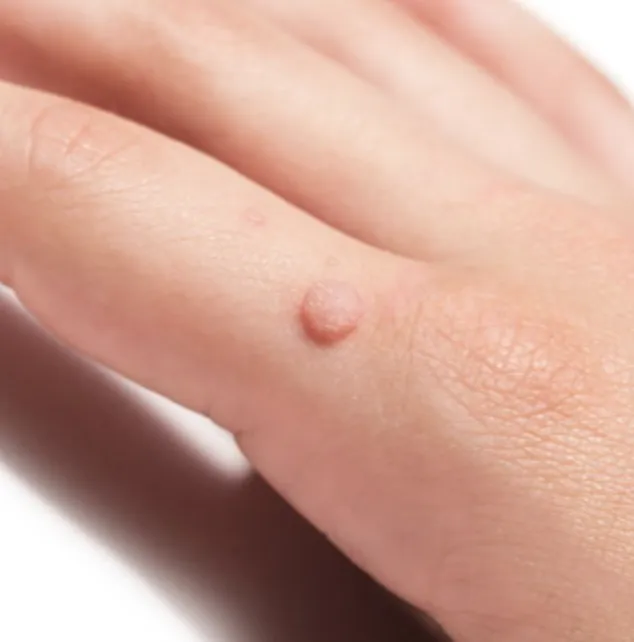
Warts: Causes, Symptoms and Treatment
Warts are one of the most common skin conditions affecting millions of people worldwide. These small, noncancerous growths are caused by the human papillomavirus (HPV) and can appear on various parts of the body, including the hands, feet, face, and even the genital area. While they are typically harmless, warts can be unsightly, uncomfortable, and sometimes painful depending on their location.
In this comprehensive guide, we explore what warts are, their causes, types, risk factors, prevention, and the most effective treatment options available today.
What Are Warts?
Warts are benign skin growths triggered by an infection with certain strains of the HPV virus. The virus enters the skin through tiny cuts, scratches, or abrasions, leading to the formation of rough, raised lesions.
Although most warts are not dangerous, they can spread through direct contact or by touching contaminated surfaces. Because of this contagious nature, treating and managing warts promptly is essential.
Types of Warts
Different strains of HPV cause different types of warts. Understanding their variations helps in proper diagnosis and treatment.
1. Common Warts (Verruca Vulgaris)
Appear mostly on fingers, hands, and around nails.
Have a rough, grainy surface and are often gray or flesh-colored.
Can grow singly or in clusters.
2. Plantar Warts (Verruca Plantaris)
Found on the soles of the feet.
Grow inward due to pressure from walking or standing, often surrounded by hard, thickened skin.
May cause significant pain while walking.
3. Flat Warts (Verruca Plana)
Smaller, smoother, and flatter than common warts.
Usually appear on the face, arms, and legs.
Often occur in large numbers (20–100 at once).
4. Filiform Warts
Long, narrow projections resembling threads.
Commonly grow around the mouth, nose, or eyes.
Spread quickly and can be irritating.
5. Genital Warts
Appear in the genital and anal region.
Caused by sexually transmitted strains of HPV.
Require immediate medical evaluation due to the risk of cancer-causing HPV strains.
Causes and Risk Factors
Warts occur when the HPV virus infects the skin. Not everyone exposed to HPV develops warts, as it depends on the immune system’s response.
Major Risk Factors Include:
Weakened immune system (HIV, organ transplant patients, or chronic illnesses).
Skin-to-skin contact with infected individuals.
Walking barefoot in public areas like swimming pools or locker rooms.
Children and teenagers are more prone due to frequent skin abrasions.
Nail biting or picking that creates openings for the virus.
Symptoms of Warts
Warts have distinct features, but symptoms may vary depending on the type.
Rough, raised bumps on the skin.
Small black dots (clotted blood vessels, often called “wart seeds”).
Pain or tenderness when pressure is applied (especially in plantar warts).
Clusters of multiple small growths (mosaic warts).
If a wart changes in appearance, grows rapidly, bleeds, or becomes painful, medical evaluation is necessary.
Diagnosis of Warts
Healthcare providers typically diagnose warts based on their appearance and location. In rare cases, a biopsy may be performed to confirm the diagnosis and rule out other skin conditions like moles, corns, or skin cancer.
Effective Wart Treatments
Although some warts may disappear on their own within months to years, many require treatment for cosmetic or comfort reasons.
1. Over-the-Counter (OTC) Treatments
Salicylic acid preparations: Gradually peel away wart layers.
Cryotherapy sprays: Freeze warts with liquid nitrogen substitutes.
2. Medical Treatments
Cryotherapy (liquid nitrogen freezing): Performed by a dermatologist, highly effective for stubborn warts.
Cantharidin application: Creates a blister under the wart, causing it to fall off.
Electrosurgery and curettage: Burning and scraping away the wart.
Laser treatment: Targets blood vessels feeding the wart, cutting off supply.
Immunotherapy: Stimulates the immune system to attack HPV (injections or topical creams like imiquimod).
3. Natural and Home Remedies
Duct tape therapy: Covering the wart with duct tape to suffocate and irritate it until it peels away.
Apple cider vinegar: Claimed to work like salicylic acid, though evidence is limited.
Garlic extract: Known for antiviral properties in alternative medicine.
Prevention of Warts
Preventing warts largely involves reducing exposure to HPV and maintaining strong skin and immune health.
Prevention Tips:
Avoid touching or picking at warts.
Keep feet dry and wear sandals in public showers or pools.
Do not share personal items like towels, razors, or socks.
Practice safe sex to reduce the risk of genital warts.
Strengthen the immune system through a balanced diet, exercise, and adequate rest.
When to See a Dermatology provider:
Seek medical advice if:
Warts are painful or spreading rapidly.
You have diabetes or immune deficiencies.
Over-the-counter treatments fail.
Warts appear on the face, genitals, or mucous membranes.
Early medical intervention ensures proper treatment and reduces the chance of recurrence.
Conclusion
Warts, though common and generally harmless, can cause discomfort and embarrassment. With the variety of treatment options available—from over-the-counter remedies to advanced medical procedures—most warts can be effectively managed or removed. Prevention through good hygiene, skin care, and immune support remains the most effective strategy.
If you are dealing with persistent warts, consulting with a dermatology provider ensures safe, effective, and tailored treatment.
Disclaimer:
The information on this website is provided for educational and information purposes only and is not medical advice. Always consult with a licensed medical provider and follow their recommendations regardless of what you read on this website. If you think you are having a medical emergency, dial 911 or go to the nearest emergency room. Links to other third-party websites are provided for your convenience only. If you decide to access any of the third-party websites, you do so entirely at your own risk and subject to the terms of use for those websites. Neither My Skin by Leah Michel, APRN, FNP-BC, nor any contributor to this website, makes any representation, express or implied, regarding the information provided on this website or any information you may access on a third-party website using a link. Use of this website does not establish a doctor-patient relationship. If you would like to request an appointment with a health care provider, please call our office at (727) 295-7223.
